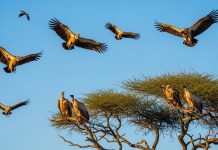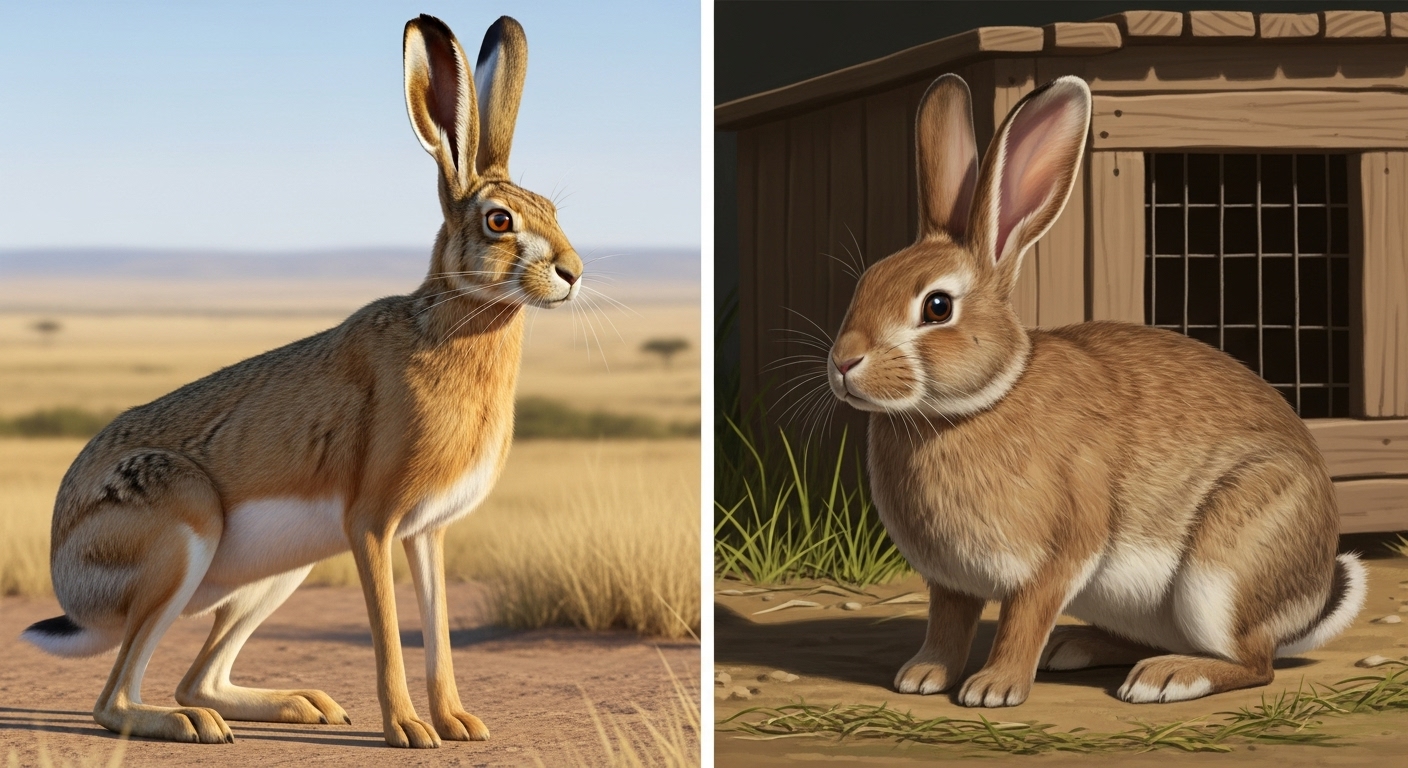A lively debate recently sparked online: Are there wild rabbits in Nigeria? The conversation quickly caught fire, especially after a renowned conservationist firmly claimed that Nigeria doesn’t have wild rabbits at all. Many Nigerians, especially those familiar with the countryside or rural areas, found this hard to believe. So, what’s the real story? Do wild rabbits roam our forests and savannas, or has there been a mix-up all along?
Let’s investigate the facts and clear up a major case of mistaken identity.

Rabbits vs. Hares: What’s the Difference?
First, it’s important to understand that rabbits and hares are not the same, even though they both belong to the same animal family: Leporidae.
Here’s a quick breakdown:
- Rabbits are smaller, have shorter ears and legs, and live in burrows. They are social animals and can be domesticated easily.
- Hares, on the other hand, are generally larger, faster, and more solitary. They make simple nests above ground (called forms) and are born fully furred with open eyes—ready to hop around almost immediately.
So, if you’ve seen a long-legged, fast-running “rabbit” darting through the grasslands of Nigeria, there’s a strong chance it wasn’t a rabbit at all—it was a hare.
So, Are There Any Hares in Nigeria?
Yes. Nigeria is home to hares, specifically the African savanna hare (Lepus victoriae) and, possibly, the scrub hare (Lepus saxatilis) in certain regions.
These hares aren’t commonly talked about in Nigeria’s mainstream wildlife discussions, but they are present in various habitats—especially in open grasslands, savannas, and woodland fringes. While they may not be as iconic as elephants or antelopes, they’re a part of Nigeria’s biodiversity.
The scrub hare, in particular, is native to parts of Southern and Eastern Africa but has also been reported in Nigeria. It’s worth noting, however, that its presence here is somewhat limited compared to countries like South Africa or Namibia. Nonetheless, occasional sightings and local knowledge suggest that hares do exist in Nigeria, even if they’re not widespread or heavily studied.
But What About Wild Rabbits?
Now here’s the key clarification: There are no confirmed native wild rabbit species in Nigeria.
The confusion likely stems from the similar appearance of hares and rabbits, especially for people who may not know the scientific distinctions. When people talk about seeing “wild rabbits” in the bush, they are most likely referring to hares.
The Rise of Domestic Rabbit Farming
While wild rabbits may not be native to Nigeria, domestic rabbits are increasingly common. In fact, rabbit farming has become a growing trend, especially among smallholder farmers and urban entrepreneurs.
These domestic rabbits—imported breeds that are now widely reared across the country—are raised for:
- Meat: A healthy, low-fat source of protein
- Fur: Though not yet widespread, it has potential for local textile production
- Pets: Many families keep rabbits as pets, particularly in urban settings
What makes rabbit farming attractive is that rabbits require minimal space, reproduce quickly, and are relatively inexpensive to feed and manage. This makes them ideal for low-income households seeking extra income or protein for the family dinner table.
Conservation and Sustainable Livelihoods
Interestingly, the growth of rabbit farming is not just an economic opportunity—it has conservation benefits too.
By promoting rabbit farming as an alternative to hunting bushmeat, communities can reduce pressure on Nigeria’s wild animal populations. Instead of hunting hares, antelope, or other endangered species, farmers can rely on rabbits for meat—creating a win-win for both conservation and rural development.
A study in the Nigerian Journal of Animal Production highlighted how integrating rabbit farming into agricultural practices can support food security and reduce illegal wildlife trade, especially in areas where bushmeat is a major protein source.
In Conclusion, No Wild Rabbits
So, to settle the debate: Nigeria does not have native wild rabbits—but it does have wild hares.
The African savanna hare and possibly the scrub hare are part of Nigeria’s landscape, even if they don’t get the spotlight. And while true rabbits may not hop around in the wild here, they are thriving in homes and farms across the country—feeding families, generating income, and offering an eco-friendly alternative to bushmeat.
So the next time someone says, “I saw a wild rabbit in the bush,” smile and gently ask: Are you sure it wasn’t a hare?

















